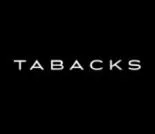A recent judgment by the Supreme Court of Appeal, Timasani (Pty) Ltd (in business rescue) and Another v Afrimat Iron Ore (Pty) Ltd [SCA case number 91/2020] has given some much needed guidance on the use of section 133 of the Companies Act 71 of 2008 ("the Act") and "...is the first occasion on which [a party has] sought to invoke the moratorium in s 133(1) [of the Companies Act] in relation to a transaction concluded after the commencement of business rescue proceedings or property coming into a company's possession after that date".
The issue the appeal court had to grapple with was whether or not Afrimat Iron Ore ("Afrimat") was barred from launching legal proceedings for the repayment of a 10% deposit made for the purchase of assets from Timasani (Pty) Ltd in business rescue ("Timasani") in terms of a business rescue plan, when the suspensive conditions of the purchase agreement were not fulfilled. The court a quo, had made an order directing the repayment of the deposit and it was this order that was the subject of the appeal.
Briefly, the salient facts of the matter are as follows: The BRP of Timasani was authorised to sell certain assets pursuant to the adoption of a business rescue plan. In this regard, the BRP authorised the auctioneer to invite offers for the purchase of, inter alia, the farm, mineral rights and mining equipment. This invitation was published by the auctioneer on its website and a deposit of 15% was payable on submission of an offer with the balance being payable within 30 days of confirmation of its acceptance.
Following negotiations between the parties, Afrimat made an offer to purchase and paid a 10% deposit of the R17 million purchase price which was to be held in an interest-bearing trust account pending the outcome of a due diligence and conclusion of final agreements.
The balance of the purchase price was payable upon fulfilment of certain suspensive conditions. However, in Afrimat's view, the offer lapsed when the parties failed to conclude the sale agreement. On this basis Afrimat withdrew its offer and requested the repayment of its deposit with interest. When the payment was not made, Afrimat proceeded to institute legal proceedings against Timasani and the BRP to recover its funds.
Timasani and the BRP defending the proceedings, and argued, inter alia that the legal moratorium provided for in section 133(1) of the Act precluded Afrimat from launching the legal proceedings the written consent of the BRP or leave of the court.
Afrimat asserted that the general legal moratorium was inapplicable, given the fact that Timasani and the BRP were in unlawful possession of the deposit (on the basis that there was no agreement) and that the moratorium cannot be used as a defence in legal proceedings that relate to property belonging to an entity other than the company in business rescue or property unlawfully possessed by the company. Put differently, a purposive interpretation of section 133 of the Act would find that it could never have been intended that the restructuring of the affairs of a company during business rescue should prevent recovery of property not belonging to it or unlawfully in its possession.
In its judgment, the appeal court expressed the view that a company under business rescue cannot be protected by the general moratorium for proceedings against it to recover property that it neither owns, nor fully possesses. Ownership and lawful possession are of fundamental importance and had to be proven in order to successfully rely on the general moratorium. Consequently, the appeal was dismissed and the deposit has to be repaid.
In conclusion, the judgment is significant for its purposive interpretation of section 133 of the Act and the conclusion that the general legal moratorium cannot sensibly be construed to provide a defence to the institution of legal proceedings in instances where the company under business rescue is in unlawful possession of the property in dispute.
The content of this article is intended to provide a general guide to the subject matter. Specialist advice should be sought about your specific circumstances.
